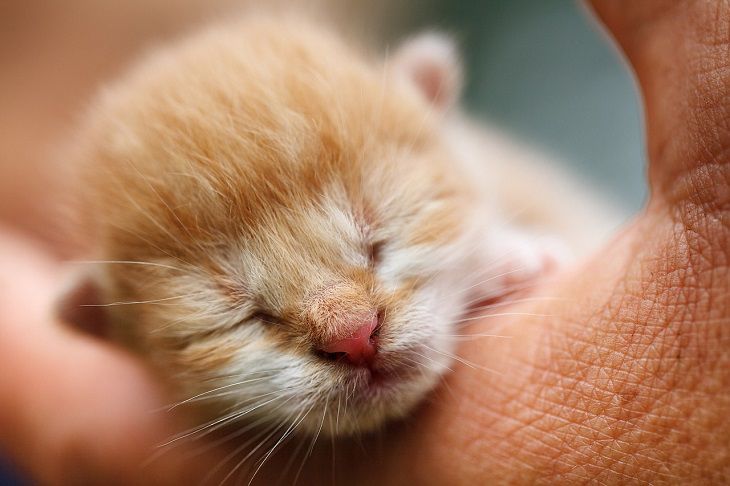Tiny kittens are easy targets for some illnesses, so you should be alert to notice any signs that something might go wrong.
In most cases, these signs are quite obvious, but sometimes you should be able to notice behavior changes to stop the illness.
Here are a few things you should notice in time.

Changes in Eating Habits
Imagine your kitten usually finishing a whole bowl of food.
If they suddenly eat much less or stop eating altogether, it's like a red flag that something might be bothering them.
Lethargy or Lack of Energy
Picture your kitten as a playful ball of energy.
If they become super sleepy and don't want to play or explore, it's like they're sending a signal that they might not be feeling well.
Strange Bathroom Behavior
Think of your kitten's litter box as a communication tool.
If there are changes in their poop—like diarrhea or constipation—it's like their way of saying, "Something's not right!"
Coughing or Sneezing
Imagine your kitten making tiny sneezes or cough-like sounds.
If this happens often, it's like their way of telling you their nose or throat might need attention.
Watery or Red Eyes
Picture your kitten's eyes as clear and bright.
If they become watery, red, or there's discharge, it's like a signal that their eyes might be feeling under the weather.
Behavior Changes
Imagine your kitten as a tiny actor in a play.
If they suddenly start hiding, acting more aggressive, or being unusually clingy, it's like they're expressing that something is off.
Weight Loss
Picture your kitten as a cute little fluff ball. If you notice a significant weight loss, it might be a sign of a health issue.
Difficulty Breathing
Think of your kitten's breath as smooth and quiet.
If you notice any wheezing, heavy breathing, or open-mouth breathing, it's like their way of saying, "I'm having trouble!"












